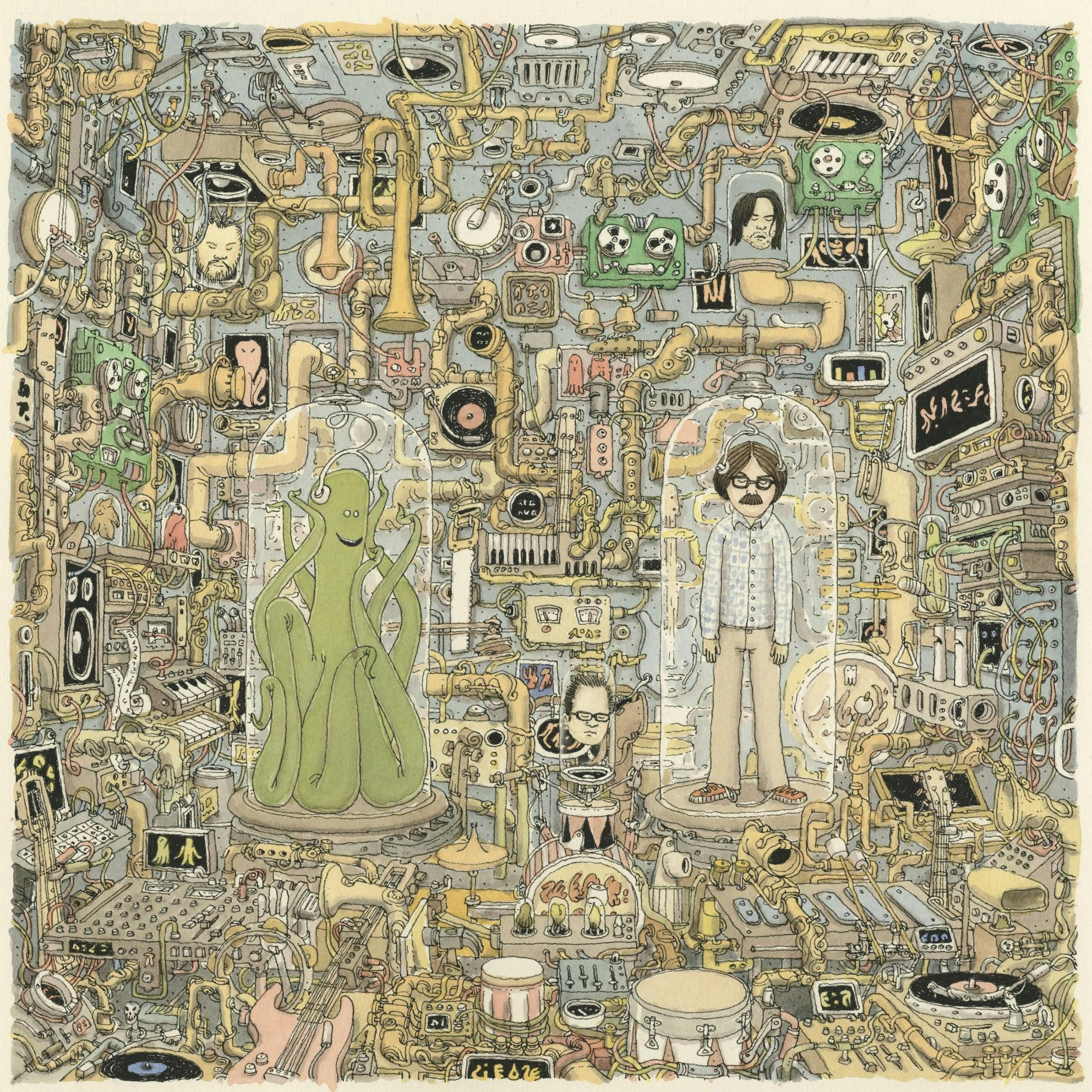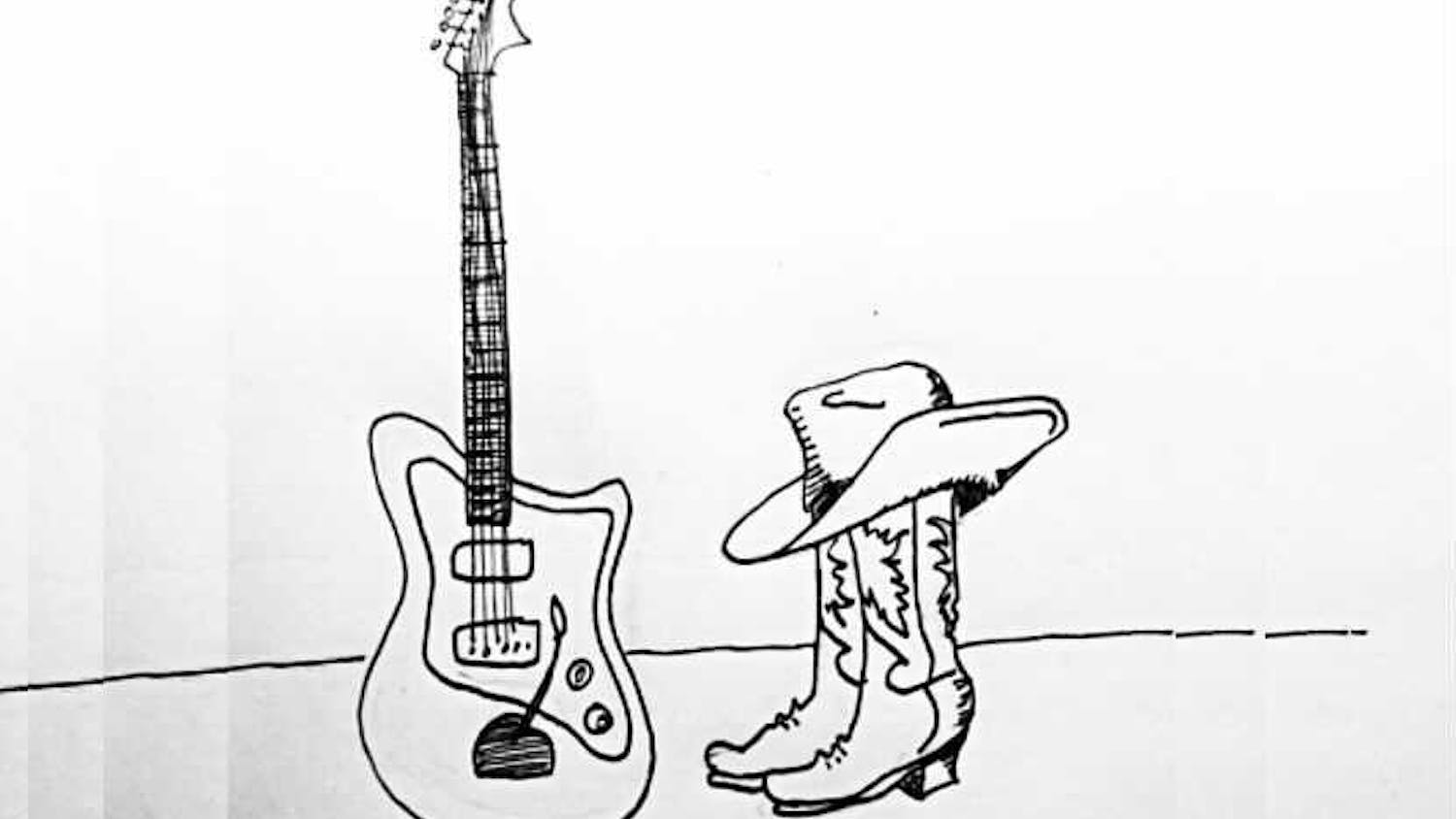No other band has had as inconsistent a career as Weezer has. After achieving critical and commercial success with the power-pop of their 1994 self-titled first album, the darker direction of Weezer’s second album, “Pinkerton,” initially drew negative reviews, despite later achieving cult status. Lead singer Rivers Cuomo’s embarrassment over “Pinkerton” led to a long series of albums in the 2000s full of safe, boring pop music that lacked the magic of Weezer’s early work. While the band did produce a couple of albums I enjoyed during this period, particularly 2016’s “White Album,” they reached a low with 2019’s “Black Album.”
However, Weezer’s latest album, “OK Human,” released on Jan. 29, brings back the charm of Weezer’s earliest work. While doubling down on their idiosyncratic style, the unabashedly grandiose orchestration and sincerity of “OK Human” has far more depth than the simplistic pop of their last 20 years’ worth of output. The care and attention to detail evidenced in this record gives it a full, complete feeling. While some of the record still feels passe at points, “OK Human” is overall a very enjoyable album that should delight fans of Weezer’s earliest work.
The most noticeable upgrade on this album over Weezer’s recent work is the lush new baroque-pop style, featuring complex arrangements of strings and horns. While this sound may differ significantly from the alt-rock of the group’s ’90s output, it replicates a certain spirit that Weezer has been unable to capture since “Pinkerton.”
The second track, “Aloo Gobi,” is a perfect example of this. Despite being a violin-led, showtune-adjacent song about boredom in L.A., it evokes the same nerdy whimsical feeling as Weezer’s iconic “Buddy Holly” from their debut album. The song begins with gliding strings and a syncopated drumline, creating a dynamic and colorful feeling. The song’s chorus is incredibly catchy, building from the verses for an amazing payoff. This is one of the best songs Weezer has released since the 1990s.
The next track, “Grapes of Wrath,” follows with much of the same energy. In this song, Cuomo sings about all the audiobooks he has listened to recently, including “Mrs. Dalloway,” “Moby Dick” and “1984,” among others. This subject is atypical for a pop song, but Cuomo sells the unconventional lyrics with unrelenting delivery. The lyrics to “Grapes of Wrath” demonstrate a sincerity that has been missing from Weezer’s music since “Pinkerton.” Cuomo emphatically sings, “I’m gonna rock my Audible/Headphone, ‘Grapes of Wrath’/Drift off to oblivion/I just don’t care, I just don’t care,” conveying his mental state in a unique way.
The ninth track, “Dead Roses,” sounds more like an updated track off of “Pinkerton” than any other song on “OK Human.” The strings create and maintain a melancholic mood throughout the song, even in the chorus. Cuomo’s vocals in the chorus perfectly complement the instrumental, teasing a melodic climax that never comes. While a lack of payoff is typically not a good thing, it fits the song perfectly. The mixture of power pop, baroque pop and alt-rock makes for an intriguing listening experience akin to any track from “Pinkerton.”
The album’s opener, “All My Favorite Songs,” represents both everything that Weezer has done well and poorly across their discography. Musically, this song is fantastic; the vocal melody is catchy, and there are layered strings and a satisfying climax. However, the lyrics are underwritten and altogether unsatisfying. In the chorus, Cuomo sings, “All my favorite songs are slow and sad/All my favorite people make me mad/Everything that feels so good is bad, bad, bad.” The rhyme scheme is overused and uninteresting, and the lyrics themselves feel generic. As this track demonstrates, “OK Human” is not fully devoid of the problems that plagued Weezer’s middle-period albums.
A few other songs from the album also suffer from poorly written or cheesy lyrics. The song “Screens,” while musically fantastic, contains over-the-top anti-technology lyrics that will annoy younger listeners. Cuomo sings eye-roll inducing lyrics like, “Now the real world is dying/As everybody moves into the cloud/Can you tell me where we’re going/Where will we be 21 years from now?”
The lyrics in “Playing My Piano” similarly drag down an otherwise fantastic song. In theory, a song about escaping from the mundanity of the real world by playing the piano sounds interesting. However, the execution leaves much to be desired. While describing how focused he is on his piano playing, Cuomo sings, “Kim Jong-un could blow up my city, I’d never know,” a not-so-topical reference emblematic of the clumsy writing in this song.
In some songs on “OK Human,” however, lyrics that would otherwise be trite are written and delivered with such sincerity that they win me over. For example, in the song “Bird with a Broken Wing” the lyrics are just as cheesy as they sound. However, the level of sincerity with which Cuomo delivers this extended metaphor, alongside the over-the-top anthemic pop instrumental, make this song surprisingly powerful. If “Bird with a Broken Wing” had been drenched in the same irony as many of Weezer’s songs over the past 20 years, it would likely have been irritating. The earnestness with which Cuomo sings about aging makes this song comparable with the fantastic “The Good Life” from “Pinkerton.”
Ultimately, “OK Human” is made complete by the attention to detail that Weezer put into it. Every track flows into the next seamlessly, giving “OK Human” a more cohesive feel, and the maximalist orchestral choices for almost every song makes the album feel full. There is never a dull moment musically.
The sincerity of the lyrics gives “OK Human” a personal feel on a level not seen from Weezer since “Pinkerton.” The fearless candor of Cuomo’s lyrics on many of the album’s songs make the band’s unique aesthetic not only palatable, but enjoyable for the first time in a while.




